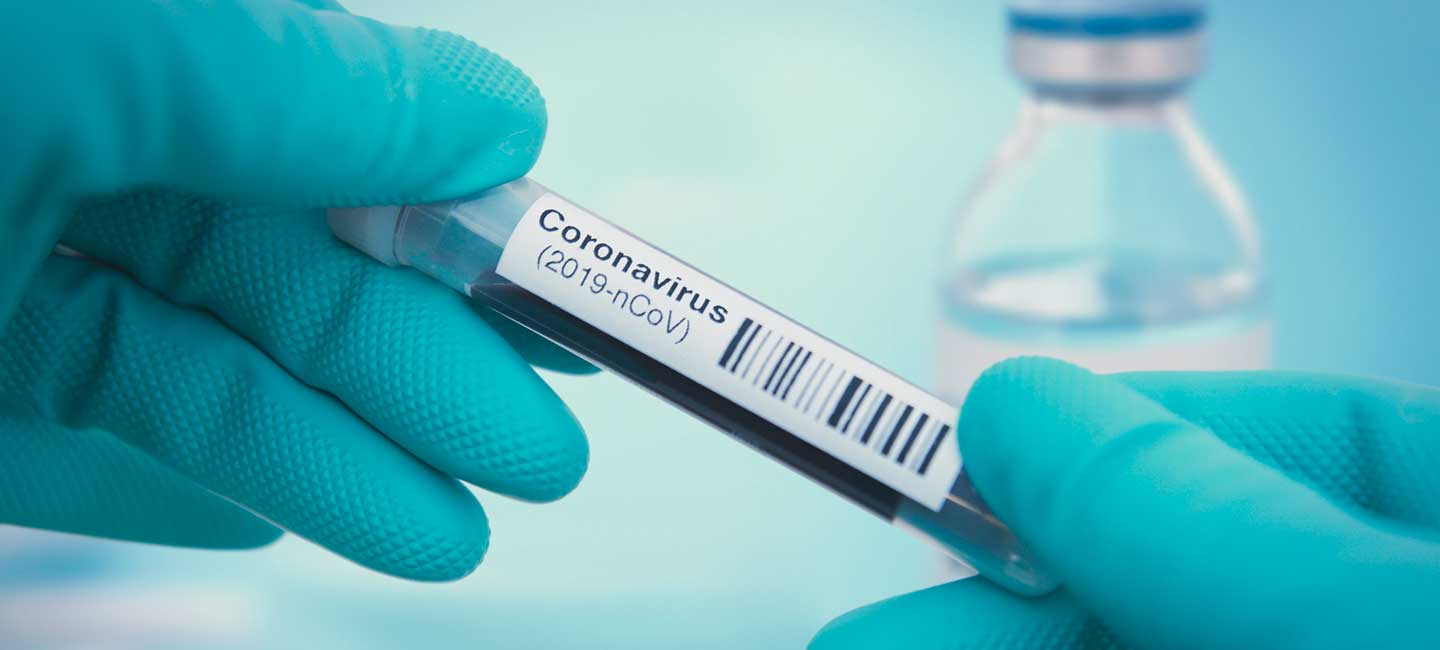How Soon Could We See a COVID-19 Vaccine?
As social distancing becomes more of a necessity than a suggestion, scientists around the globe are scrambling to develop vaccines and treatments to battle the respiratory disease COVID-19. The viral infection, which causes fevers, coughing and breathing issues, is rapidly making its way through the U.S.
Which brings us to the question on everyone’s mind: Can scientists act fast enough to develop a vaccine to curb this devastating pandemic?
How Does A Vaccine Work?
A vaccine introduces the body to part or all of a pathogen that causes a specific disease. This is usually done through injection. Once introduced, the pathogen signals the immune system to produce antibodies to neutralize or destroy the disease-causing pathogen. Antibodies are also a memory system for your body and can trigger an immune response should your body be introduced to the same pathogen again.The answer is both yes and no.
While vaccines can take years to be tested and approved for widespread use, the government has tools it can use to expedite that process. This same fast tracking can also be applied to to the development of treatments. It’s also important to note that the immune system of most healthy individuals will wage its own fight against the virus.
“Vaccines typically take years to develop,” said Dr. Anna Giuliano, founding director of the Center for Immunization and Infection Research in Cancer at Moffitt Cancer Center. Giuliano was involved in bringing Gardasil, the human papillomavirus (HPV) vaccine, to the masses. It was a process she says took decades.
“We had our first evidence of HPV causing cancer in the late ’80s, did vaccine development and clinical trials in the 90s and early 2000s, and the vaccine was finally approved by the Food and Drug Administration (FDA) in 2006,” Giuliano said.
Studies to develop vaccines against cancer-causing viruses typically take a long time for several reasons. Cancer is a slow-growing disease. Transmission of viruses like COVID-19, where transmission through droplets is common and disease develops within days, not years after virus exposure.
Those who contract COVID-19 typically develop symptoms within two to 14 days after exposure. This enables researchers to get to work faster on developing interventions. In January, Chinese scientists were able to quickly sequence the genetic material of the virus that causes COVID-19, giving researchers another jump-start to develop a vaccine.
Giuliano says past epidemics also helped fuel current research. “Coronaviruses are not new. Severe acute respiratory syndrome, or SARS, in 2002 and the Middle East respiratory syndrome, or MERS, in 2012 were both caused by coronaviruses,” she said. “Some of the research studying those epidemics are now being repurposed to develop a COVID-19 vaccine.”
Two companies – Novavax and Moderna – are quickly working to develop vaccines based on previous coronavirus research. Novavax is repurposing its SARS and MERS vaccines to create a new one that targets COVID-19 but says it will not be ready for clinical trials until later this spring.
Working with the U.S. National Institute of Allergy and Infectious Diseases and National Institutes of Health, Moderna has already used its MERS research to bring a COVID-19 vaccine to a phase 1 clinical trial. Recruitment of 45 healthy participants began in early March.
While these developments are encouraging signs, they are just the first step in what could be a years-long process.
“In a phase 1 trial, they're only looking for vaccine-related adverse effects, such as pain at the injection site, some sort of a low-grade temperature, maybe an allergic reaction,” said Giuliano. “Scientists just want to know, ‘is it safe and does it induce an antibody response that may be protective?’ Assessing safety is paramount for any vaccine intended to be delivered to millions of healthy people.”

The phase 1 clinical trial for the Moderna vaccine isn’t slated to be complete until June 2021. A phase 2 trial will then test if the vaccine works and determine the correct dose. That phase, which recruits a hundred or more participants, can take a year or two. Lastly, thousands of patients will be recruited for a phase 3 trial, which can take anywhere from one to four years to complete. After the three trial phases are finished and the data are compiled, an application can be filed with the FDA for approval.
“When you consider all the phases of clinical trials this vaccine will need to go through and the safety involved, it is clear to see this vaccine will not be ready in time for this pandemic,” said Giuliano.
Ebola is a good example, she said. In 2014, scientists worked around the clock to develop a vaccine for that epidemic, but it wasn’t approved by the FDA until December of 2019.
Giuliano hopes that educating people about the process will help to highlight the importance of immunization and vaccination in the U.S. and globally. “We have vaccines that prevent cancer that are currently under-utilized,” she said.
U.S. Surgeon General Dr. Jerome Adams shared similar thoughts on ABC’s Good Morning America: “It is important to note that a vaccine, if developed, is going to help us with the next round of coronavirus. For this first round, we need to rely on hand washing and social distancing to limit the spread of the disease.”
Still, Adams and other health officials have said publicly that a vaccine could be ready in 12-18 months, which is a much shorter time than the clinical trial process outlined by the FDA.
The FDA can issue an Emergency Use Authorization, which allows for the use of an unapproved drug or biological product, like a vaccine. This step requires the Secretary of Health and Human Services to declare a national public health emergency.
The FDA can also expedite the process by assigning priority review, fast track designation or accelerated approval to an investigational drug or vaccine that treats serious, life-threatening conditions.
It is unclear if any of these have been applied to the COVID-19 vaccines or treatments.
Even if the approval process is fast-tracked, Giuliano said manufacturing could delay a COVID-19 vaccine. “Once you do have a vaccine that's ready to go, you then have to have a manufacturing plant that is ready to mass produce the vaccine quickly.”
Even without a vaccine, there is no need to panic. Your immune system is equipped to handle coronaviruses. Built in two parts – innate and adaptive – the immune system can recognize a pathogen, like a coronavirus, and signal the production of antibodies as a defense. It also can remember the pathogens and antibodies used to fight it should you encounter it again.
The most important thing you can do in the meantime is wash your hands, avoid touching your face, practice social distancing and stay at home as much as possible.



